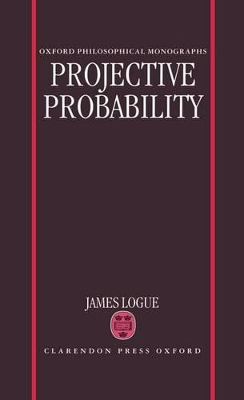Oxford Philosophical Monographs
1 total work
This book presents a novel theory of probability and judgements of probability: strong coherentist subjectivism. Logue combines three claims in his exposition of this theory. The first states that probabilities may be treated as the degrees of partial belief of (ideally rational) agents, best established by the examination of behaviour. Thus, probability is personalist. The second claim contends that only such degrees of belief can be construed as probabilities: on
this strongly subjectivist view the notion objective chance is, if not conceptually impossible, at any rate redundant. The third, coherentist, claim maintains that minimal coherence of probability-beliefs is all that is necessary for those beliefs to be rational; that is, on this view, weak
coherence of a set of beliefs is both a necessary and sufficient condition for the rationality of those beliefs.
This theory suggests a quasi-realist perspective, in which probabilities are viewed as projections of subjective evaluations. Provided that these evaluations conform to the standards of coherence, they come legitimately to be expressed in apparently realist of objectivist language. This projectivist outlook provides a convincing rationale for the theory, helps to free it from psychologism and excessive 'Bayesian' zeal, and provides it with smoother solutions to longstanding problems in the
area of probability.
this strongly subjectivist view the notion objective chance is, if not conceptually impossible, at any rate redundant. The third, coherentist, claim maintains that minimal coherence of probability-beliefs is all that is necessary for those beliefs to be rational; that is, on this view, weak
coherence of a set of beliefs is both a necessary and sufficient condition for the rationality of those beliefs.
This theory suggests a quasi-realist perspective, in which probabilities are viewed as projections of subjective evaluations. Provided that these evaluations conform to the standards of coherence, they come legitimately to be expressed in apparently realist of objectivist language. This projectivist outlook provides a convincing rationale for the theory, helps to free it from psychologism and excessive 'Bayesian' zeal, and provides it with smoother solutions to longstanding problems in the
area of probability.
